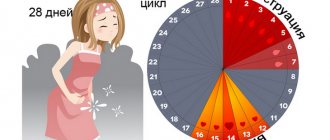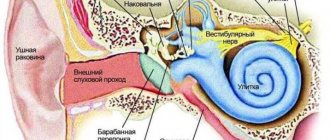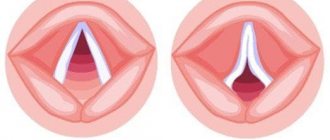How to explain the process of menstruation to a child
With every fiber of my soul I hate unscientific explanations that are given to natural physiological processes, for fear of injuring a tender young creature. Moms and dads come up with bright tales about cabbage and storks, forgetting that all myths will have to be debunked sooner or later. But, alas, a child living in a society of partially adequate people will figure everything out on his own before his parents figure out a scientific explanation. Only at the same time will he lose trust in his parents, become disillusioned with humanity and acquire another injury.
And now I’m not just talking about childbirth. I'm talking about a huge number of topics related to human physiology, including menstruation. Only with menstruation things are much worse than with childbirth. If how the baby ended up in the mother’s belly is explained as an idiotic tale, then why the girl’s genitals begin to bleed every 30 days – some parents prefer not to explain at all. And some explain that menstruation is so taboo that crowds of girls spend the rest of their lives hiding pads in the back of the closet and are embarrassed to mention that periods even exist.
Explain that this is an absolutely natural process that should not be ashamed, and do not use names like “guests from Krasnodar”, “these days”. Periods and that's it. Make your daughter feel comfortable, show her that this process is only part of physiology, which is not something to be ashamed of.
Any physiological process can be explained in two ways: from a scientific point of view and from an idiotic point of view. The second option involves diminutive names for genitals, stigmatization, as well as calling certain processes of the body “dirty.” I suggest the first way. Here, from my point of view, is the ideal formulation that will be understandable to a child:
“Daughter. You are now going through adolescence, which means your body is maturing, and the body system with the help of which children are born is maturing along with you. This means that soon the special organs of your body - the ovaries - will begin to produce cells from which the child develops. Such a cell (it is called an egg) lives in your body for about three weeks, and then becomes unusable. Your body prepares for pregnancy every month, and expired cells come out every four weeks. This is called menstruation. During menstruation, a woman experiences blood coming out of her vagina. Before your period, your mood may deteriorate and your lower abdomen may hurt. Sometimes the skin deteriorates, but it’s okay, it will all go away soon. Here's the gasket for you. It is glued to the underwear and it absorbs the discharge. If you feel pain during your period, contact me.”
Calendar photo created by freepik - ru.freepik.com
If your periods are painful, contact your pediatric gynecologist, because severe pain can be a symptom of an ovarian cyst, which, in turn, can lead to cancer or rupture unexpectedly, which often leads to death.
I know, it's long. However, such a tirade explains the whole process as clearly as possible. After you finish talking, answer all your daughter's questions, show her how to use the pad, put a few in your daughter's bag or backpack, and place some painkillers next to them. If possible, encourage your daughter to call if she gets her period during school. Explain that this is an absolutely natural process that should not be ashamed, and do not use names like “guests from Krasnodar”, “these days”, “critical days”. Periods and that's it. Make your daughter feel comfortable, show her that this process is only part of physiology, which is not something to be ashamed of. And please don't ignore your daughter's well-being. All women experience the first days of their period differently. I experience almost no discomfort, but my friend in the first days of her cycle can only sob in pain while lying in bed. If your periods are painful, contact your pediatric gynecologist, because severe pain can be a symptom of an ovarian cyst, which, in turn, can lead to cancer or rupture unexpectedly, which often leads to death. If you think your daughter is faking it, it's best to take her to the doctor anyway. This is the case when “it’s better to be safe than sorry.”
When is the best time to tell your daughter about her period?
The period of puberty is purely individual and determined by genetics. For some, the menstrual cycle begins at 10 years old, and for others at 16. It must be said that if this happens at an earlier age or, conversely, there is a delay, then this fact should be alarming and be a reason for consulting a doctor.
It is best to start a conversation about menstruation long before the onset of menstruation, and this conversation should not be isolated, but rather should be part of a cycle of conversations about puberty as a whole. After all, children begin to be interested in the anatomy of their body and its changes at the age of three. Therefore, it is worth starting sex education from this period.
First of all, this is done so that the onset of menstruation itself and the conversation about growing up are not a surprise for the girl. Trusting relationships between mother and daughter should be built from a very early age.
Any changes in height, build, figure, behavior and appearance should be discussed in a friendly and calm, intimate atmosphere. Intimacy in this case means a one-on-one conversation. A sort of secret whispering between mother and daughter. From an early age, a girl should be taught to ask questions related to her appearance and internal changes in her body without hesitation.
If we talk specifically about the monthly cycle itself, then this topic should already be covered about a year or two before the start of menstruation. After all, it is during this period that changes occur not only in the character of girls (they become hot-tempered, rude, or, conversely, withdraw into themselves), but also in physiology and psychology. The growth of the mammary glands, the appearance of acne, the body becomes angular and disproportionate, the first hairs appear under the arms and on the pubis, the hair becomes greasy - all these changes indicate the body’s readiness to begin the transition to the reproductive period.
How to tell a girl about her period
Ideally, the conversation can begin after the daughter asks a corresponding question. But this is ideal. Most likely, such a question may not arise at all. And not because you weren’t frank with the girl before about maturation issues, but on the contrary, too frank.
When girls become teenagers, they are often shy about such issues and it is easier for them to discuss them with their friends than with their mother, who, although “understandable,” is still an adult. And adults in the eyes of teenagers cause involuntary alienation. Here are some guidelines on how to start and navigate this conversation.
- Choose a place and time for the conversation so that no one can interfere or interrupt it.
- Don't start a conversation in a solemn tone or "grab the bull by the horns" by talking about menstruation right away.
- Start with another topic, such as relationships with boys or how to avoid conflict (another option is overcoming shyness) and smoothly move the conversation to the topic of internal puberty.
- Try not to change your voice intonation or facial expressions during a conversation. The conversation should be natural and friendly.
- Ask if your daughter has any questions about her physiological changes, and don't be upset if she says no. This is normal for a teenager.
- Turn the conversation to yourself and talk about your experiences: where, when and how you learned about periods, how it was perceived and how it made you feel.
If the question about menstruation was asked by a small child (3-6 years old), then there is no need to talk in detail about all the nuances, just tell the girl that monthly bleeding is associated with the birth of children in adult women. Something like: “If mom didn’t bleed once a month, she wouldn’t be able to give birth to you. “All this is connected with physiology, and therefore I will tell you everything when you get a little older.” But you shouldn’t completely ignore the question or avoid answering it. This does not promote trusting relationships.
How to introduce your daughter to menstrual hygiene products
First, of course, convey to your daughter that during her period she needs to shower twice a day: in the morning and in the evening. Secondly, provide a package of wet wipes, and thirdly, explain that during menstruation there is a higher chance of infection. Please note that it is not advisable to bathe during menstruation, because swimming poses a risk of infection in the vagina. And then tell us about the hygiene products that women use during menstruation.
- Gaskets
Just ceremonially handing out a package of gaskets, oddly enough, is not enough. It is also necessary to explain how the gaskets work. That they absorb liquid, and it is advisable to change them every 2-3 hours, even if the gasket is almost clean, and also when they become dirty. Because wearing pads for too long is unhygienic, because this is a wonderful environment for the proliferation of all sorts of bad bacteria, which definitely will not lead to anything good. An important point is the fact that gaskets are made from different materials and that one or another material is more convenient for each. It is also necessary to know that different pads absorb different amounts of liquid, some are more convenient to wear during the day, while others are intended for use at night. - Tampons
There’s really nothing to say about tampons. It's enough that tampons are bad and shouldn't be used. However, a simple “this is bad, daughter” is not enough. It’s immediately tempting to check how “bad” it is. So now I will explain why tampons should be banned. A tampon is essentially an absorbent plug. A compressed piece of cotton wool is inserted into the vagina, it absorbs secretions, warmth, good, wet... the most favorable environment for the growth of bacteria. All this can lead to very unpleasant diseases such as thrush. By the way, tampons cause irritation to the mucous membrane and can injure the vagina and vaginal crown when removed, as they significantly increase in size over time. Here you can object: “But you can swim with tampons, they don’t interfere!” And no, this is still not a reason to use tampons! After all, there is a wonderful invention that works much better. And this is the menstrual cup that I will talk about now.
- Menstrual cups
A menstrual cup is essentially a small silicone container that is inserted into the vagina in a special way. Actually, all the discharge during menstruation ends up in this container. You can wear a menstrual cup without changing it for 12 hours. The secretions will be contained in the bowl, which will prevent the development of bacteria. Due to its softness, the bowl does not cause irritation, and silicone is not a favorable environment for the development of bacteria. Another advantage of the bowl is that you can choose a bowl depending on your individual parameters.
In any case, the hygiene product during menstruation should be chosen exclusively by your daughter. The same tampons are not so harmful if you change them often, but the cup can cause discomfort if you insert it incorrectly. The best option, of course, is pads, which should be provided to the child, because pads are the easiest to use. You should also not forget that the first period is stressful for a girl, and points that are obvious to you may not be clear to her. Be patient, answer all the questions that interest your daughter so that she knows her body and is not afraid of it.
Duration of first menstruation
Normally, menstrual bleeding lasts from 3 to 5 days, but minor deviations are possible, both episodic and becoming the individual norm of a particular female body.
However, you should pay attention to extremes and consult a gynecologist.
- If your period lasts less than 3 days, this may be a sign of ovarian dysfunction or an insufficient amount of sex hormones.
- If menstruation is too long (more than 7 days), this indicates a possible excessive estrogenic function of the ovaries or insufficient ability of the uterus to contract.
How to successfully organize a conversation
It is important to start an intimate conversation correctly. There is no need to do this very abruptly (go straight to the point). If you tear a girl away from some activity, sit her down in front of you and announce with a serious look that she is now learning something very important, then the child may simply withdraw into herself or subconsciously perceive the information negatively.
The wrong moment can ruin an entire important conversation.
It is best to choose a time when the mother and daughter are alone at home, the girl is not particularly busy with anything and is definitely in a good mood. Alternatively, you can talk while walking, for example, in a cozy square or park where there are no people nearby.
It’s good to start the conversation by discussing related topics, for example, noticing how your daughter has changed lately (prettier, seems more mature), and then smoothly move on to a topic that worries her mother.
A woman must also provide for a soft tone of conversation, inviting facial expressions (no need to make a too serious face), and gestures.
An appropriate tone, smile, tactile contact are the keys to a successful conversation with a child.
An interesting technique is to initially arouse the girl’s curiosity: for example, show the pad and ask, “Do you know what this is? Are you wondering why this is needed?
You can pique your daughter's initial interest by showing her the pad.
Video: preparing my daughter for her first period (video from the Always company)
How to prepare for a sensitive conversation
Few mothers manage to find the right words to tell their daughter what menstruation is. A feeling of embarrassment and some kind of shame interferes.
What can help:
- Special teenage encyclopedias. Just don't buy the first one you see. There is also a lot of “information garbage” in books. Scroll through and look at the pictures. But don't just put the book in a visible place. Read, express the essence in your own words, look at the photographs and illustrations together.
- Video materials . You can find a good documentary, or a good blog by a gynecologist, there are even cartoons on this topic. Watch the video together and answer questions as you watch.
If you are already in the mood to talk about menstruation, you need to build the dialogue correctly.
The worst thing you can do in such a situation is to start the conversation with the phrase: “Sit down, we need to have a serious conversation.” After such words, even adults begin to get nervous, let alone a child.
A delicate conversation should take place in a relaxed atmosphere, while watching a movie together or taking a leisurely walk. There should be no strangers nearby; an intimate conversation does not require additional listeners and advisers.
When do girls usually get their periods? How to understand that a girl is entering puberty?
Typically, periods begin about 2 years after breast development begins, and six months before the first menstruation, hair growth begins in the armpits and pubic area.
On average, girls start their periods at 12 years old, but there are cases when they start much earlier, and it is possible that this will happen to your daughter.
Accordingly, more detailed conversations about changes in a growing female body should begin at the age when puberty begins.
It is necessary to calmly, in a relaxed atmosphere, tell the girl what changes she should expect, so that her first menstruation does not come as a surprise, so that she is prepared and knows what to expect and what to do.
Signals to start a conversation
The girl’s body is preparing for the start of the menstrual cycle, which is inevitably reflected in her appearance. In about a year, the girl experiences a sharp growth that can reach 12 cm. A disproportionate change in body parts occurs, the foot and hands become greatly enlarged. A harbinger of the imminent onset of menstruation is the appearance of the following signs:
- rounding of the mammary glands;
- the appearance of increased oiliness at the hair roots;
- the appearance of hair in the pubic area and armpits;
- the appearance of an oily sheen on the face, rashes in the form of pimples and blackheads.
In the period before the onset of menstruation, a girl experiences sharp changes in behavior, previously unusual features and abrupt behavior appear. When such signals appear, you need to prepare for how to tell a girl about her period.
Important conversation
Not all girls quickly adapt to the changes happening to their body. This scares some, repels others. And someone wants it all to just “turn off” and return to its previous carefree course.
And here the child’s trusting relationship with his mother plays an important role. It is the mother’s word that can calm and instill confidence if the mother accurately understands the characteristics of her child’s psyche. Information about menstruation should be presented exactly in the form that will be most favorably received by the young owner of a particular vector.
For example, if your daughter has an anal vector, it may be difficult for her to perceive changes in her body due to her slowness and not very high adaptability. But if you help her understand the meaning of what is happening through her basic values, she will carry out her role as a future woman with pride and dignity.
What are these core values? From a young age, a girl with an anal vector dreams of a future marriage and a happy family. You can tell her that the changes taking place are preparing her body for the future role of a mother. It is important that this information should not contain sexual overtones - you should not immediately explain about unprotected sex, abortion and other horror stories.










